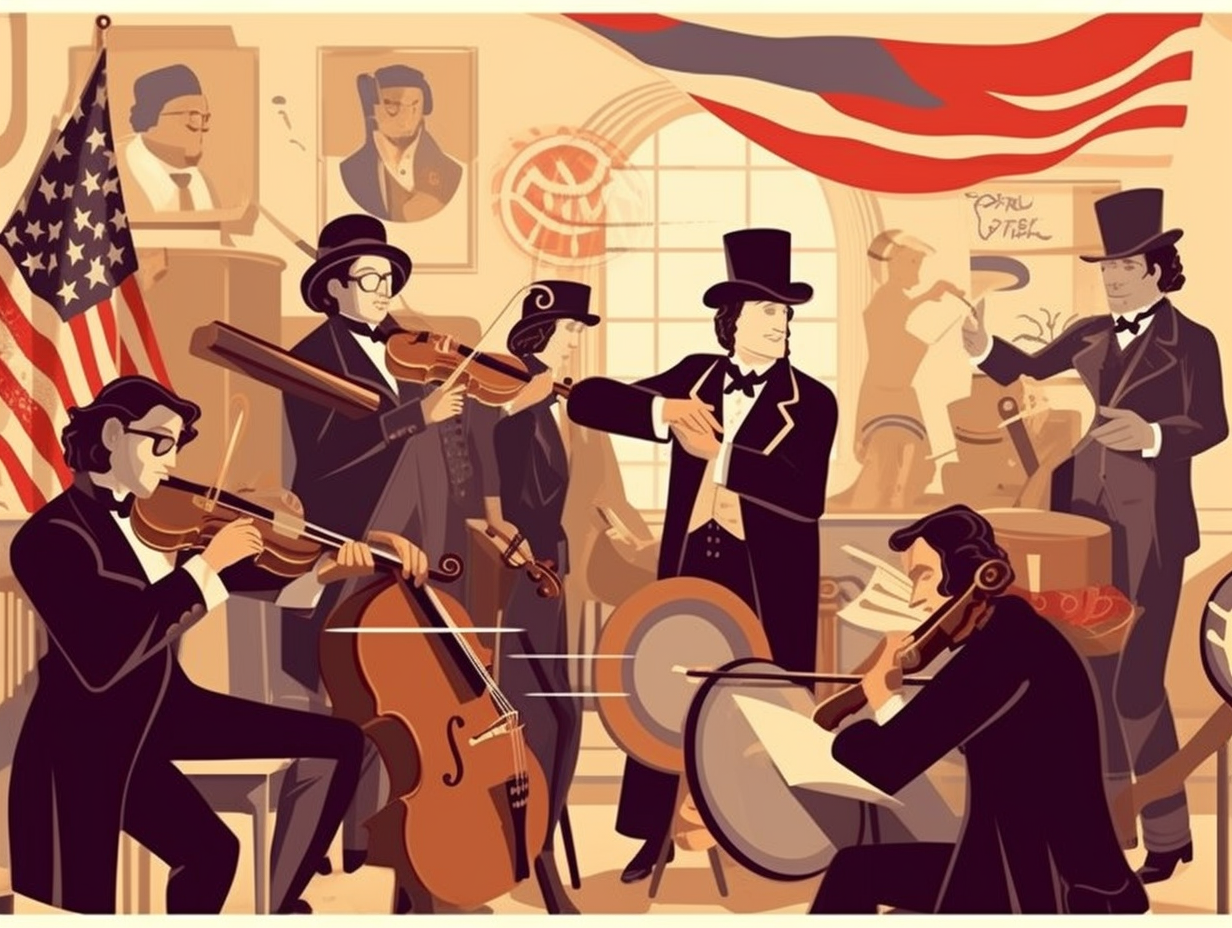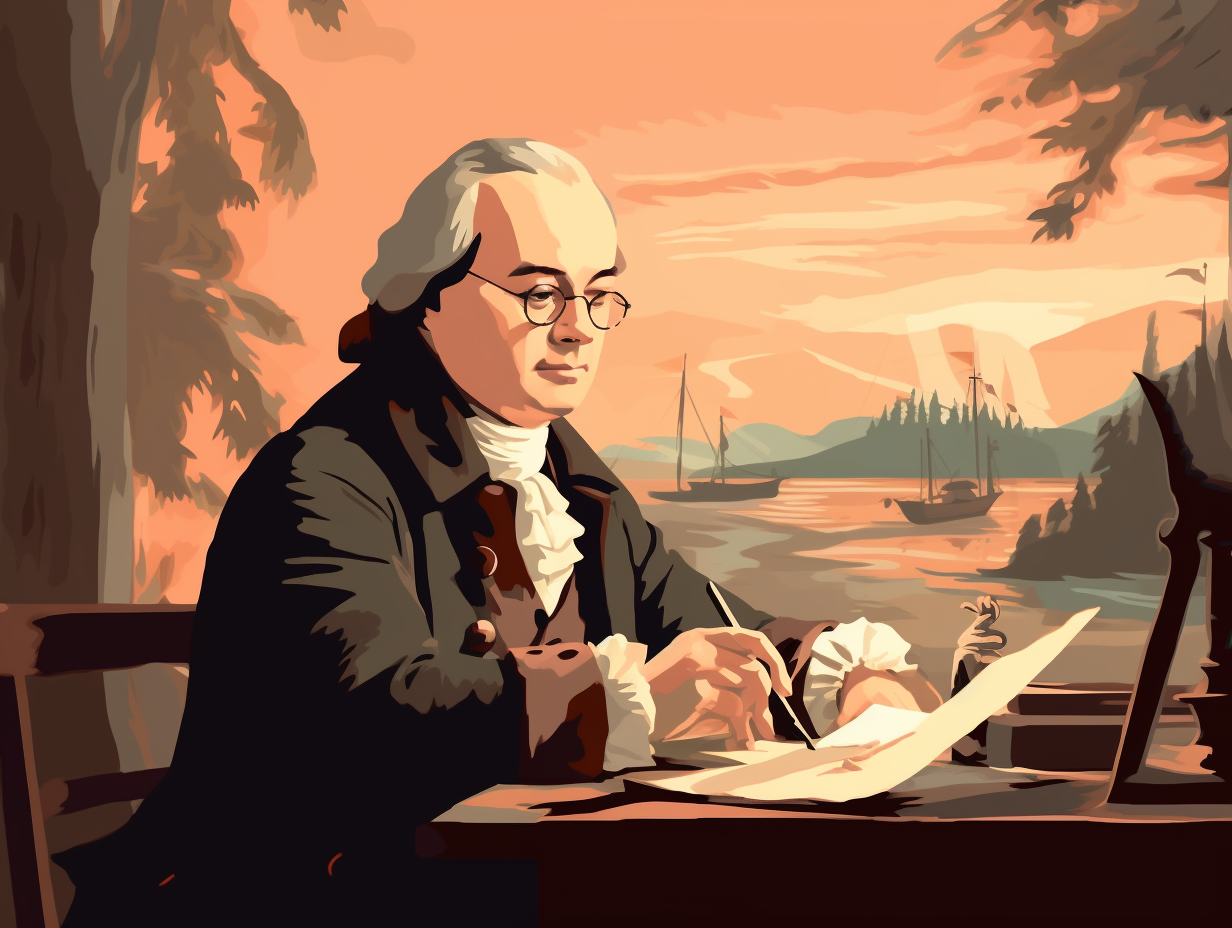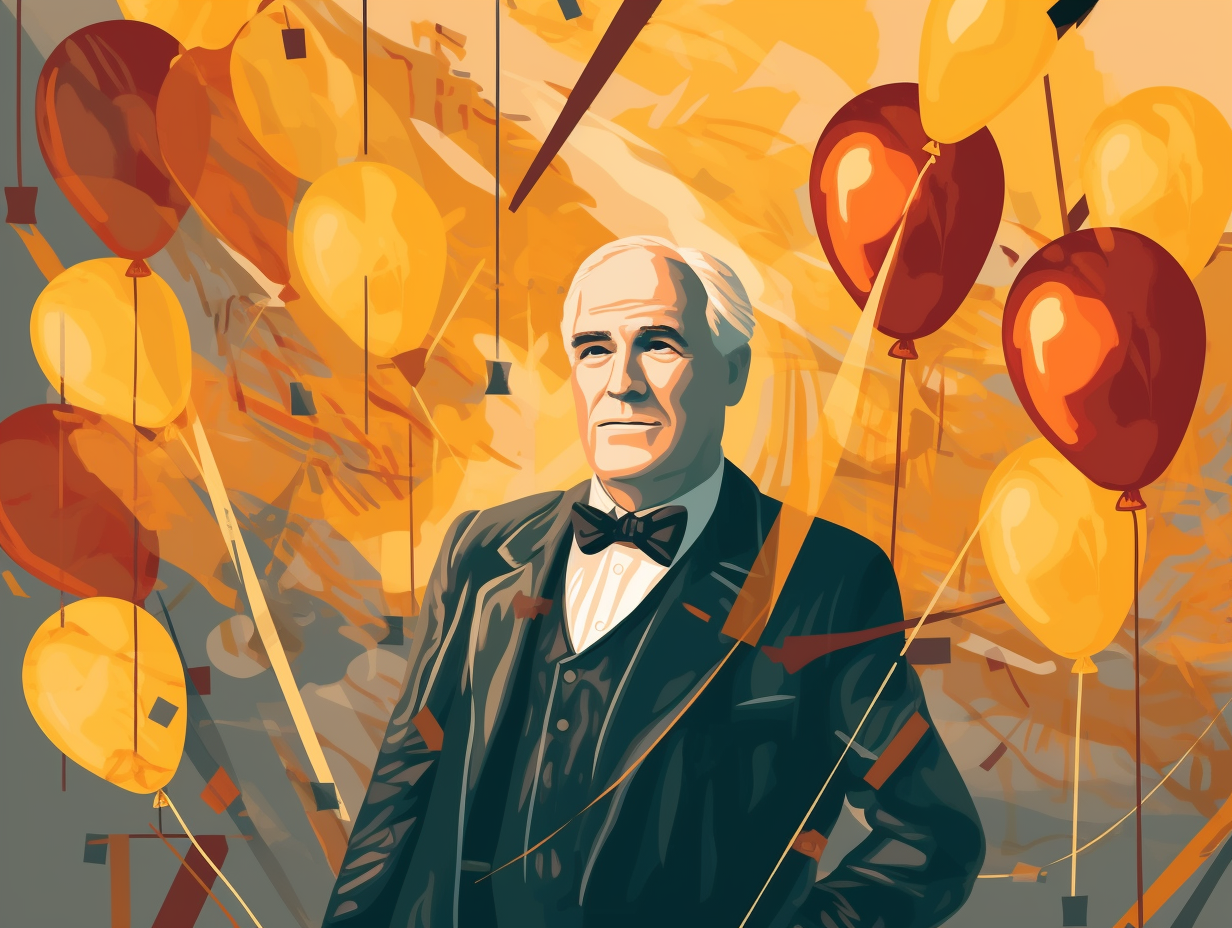Discover the Quirky Side of History: Top 15 Fun Facts About the 22nd Amendment You Never Knew!

1. Presidential Dating Game
Breaking up is hard to do, and so is letting go of presidential power: The 22nd amendment, ratified in 1951, ensures that the U.S. plays the dating game with its presidents, giving them a maximum of two terms. Anyone holding the presidency for over two years of another person's term also gets the cold shoulder, never to be elected again - but fear not, presidents in office during the proposal of this law got to finish their term without a sudden, heart-wrenching breakup.
Source => constitutioncenter.org
2. Constitutional Twist
Hold onto your powdered wigs, folks, because it's time for a constitutional twist worthy of M. Night Shyamalan: The 22nd amendment doesn't cap a President's term at ten years, but rather, it limits the number of times one can be elected to the office to two terms, and permits only one election for someone who has served over two years of another's term – with no ten-year limit in sight or mention of applying to pre-amendment Presidents!
Source => constitutioncenter.org

Did you know that former rival Presidents Thomas Jefferson and John Adams both passed away on the same day, July 4, 1826 - the 50th anniversary of the Declaration of Independence? Discover their unique story and how their animosity transformed into an unexpected friendship. 🇺🇸❤️📝
=> Fun Facts about Presidents
3. White House Hotel California
Before the 22nd Amendment played spoiler, some American presidents might have considered turning the White House into their own personal "Hotel California" - a place where they could check in any time they liked, but could never really leave: The inkling to set a term limit gained steam with Ulysses S. Grant and Teddy Roosevelt attempting to snare a third term, but it took Franklin D. Roosevelt’s third and fourth electoral victories to finally bring about the 22nd Amendment, which put the kibosh on any such plans and capped presidential stays at two terms. And while the amendment has dodged a few repeal attempts, it remains alive and kicking, ensuring no one overstays their welcome in the Oval Office.
Source => constitutioncenter.org
4. Roosevelt Double-Dippers
If oranges are the new black and three's a crowd, then Roosevelts were possibly the original double-dippers: Franklin D. Roosevelt's unprecedented third and fourth terms led to the 22nd amendment, despite Teddy Roosevelt's winkle attempt in 1912 and Ulysses S. Grant's party-poop nomination fail in 1880. This continues to safeguard against political chaos and preserve George Washington's wise two-term precedent.
Source => constitutioncenter.org

5. Limited Presidential "Terms"
Step aside, caffeine: there's another, more governmental, way to limit your "Terms" of service – The 22nd Amendment: This historical gem restricts a person from being elected President of the United States more than twice, while also limiting a once-elected president who has held office or acted as president for over two years of another's term, to only one more term. Sorry, presidency enthusiasts, no double-dipping allowed!
Source => constitutioncenter.org
6. Tripartite Presidency Foiled
Before "third time's a charm" became a handy expression, it was more like "three's a crowd" for a couple of Presidents with an unquenchable thirst for staying in office: Behold the intriguing tale of Ulysses S. Grant and Theodore Roosevelt's pursuit of a tripartite presidency! Alas, the 22nd amendment reigned supreme: Both of their ambitions to bag a third term were dashed, with Roosevelt's 1912 adventure playing a pivotal role in dividing the Republican Party and ushering in Democrat Woodrow Wilson's victory.
Source => en.wikipedia.org
7. Presidential Sell-By Date
Who knew presidential terms had a sell-by date? Apparently, the 22nd amendment did! The serious reveal: This amendment, a reaction to FDR's four-term stint in office, restricts presidents to serving just two terms, but it didn't affect any sitting presidents during its ratification, letting them serve out their remaining term.
Source => constitutioncenter.org
8. 22nd Amendment: Power-limiting Superhero
In a world where presidents can seem more like the Energizer Bunny on a power trip, the 22nd amendment swoops in like a cape-clad superhero, fighting for term limitations: Ratified on February 27, 1951, this heroic amendment limits individuals to serving a maximum of two terms as President of the United States, a response to Franklin D. Roosevelt's unprecedented four-term presidency, and ensures a peaceful passing of the power baton.
Source => constitutioncenter.org
9. No Third-Time-Charming in Oval Office
Whoever said "third time's the charm" clearly wasn't talking about U.S. Presidents: The 22nd amendment limits a person to being elected as President to a maximum of two times, and prevents anyone who has held the office or acted as President for over two years of a term from being elected more than once. Moreover, this amendment wisely exempted those already holding the office when it was introduced.
Source => constitutioncenter.org

10. Two Scoops of Power, No More
Like a strict parent saying "two scoops of ice cream and that's it", the U.S. Constitution is ensuring that presidents don't overindulge in power: Despite occasional attempts by Congress to repeal the 22nd Amendment, it withstands the test of time, continuing to limit presidential terms to just two.
Source => constitutioncenter.org
11. Power-Tying 22nd Amendment
Just when you thought America couldn't tie you down: turns out that the 22nd Amendment swooped in, firmly establishing presidential term limits after Franklin D. Roosevelt's epic four-term run. Ratified on February 27, 1951, the amendment was sparked not just by FDR's record-breaking tenure but from lengthy debates that have been around since the Constitutional Convention of 1787. Today, the 22nd Amendment limits future presidents to serving two four-year terms, and it even has a few sneaky stipulations for those inheriting unexpired time in office.
Source => en.wikipedia.org
12. President's Boomerang Back Policy
Ever wondered if the Oval Office had a "no return" policy like a retail store? Well, buckle up, because things are about to get term-inatingly interesting: The 22nd Amendment limits a U.S. President to two full elected terms, but there's no rule against serving non-consecutive terms, so technically a President can boomerang back for more power after a break, as long as they follow the term-odic table of Presidential restrictions.
Source => en.wikipedia.org
13. The Cap on Power-Hungry Leaders
Disregarding the well-known "three's a charm" philosophy when it comes to presidential terms, America decided to put a cap on the power-hungry leader sale: The 22nd Amendment, ratified in 1951, limits an individual to just two terms as President of the United States. Birthed out of concern following Franklin Roosevelt's whopping four consecutive terms, it has stood strong against repeal attempts ever since, even allowing Truman and Johnson to toy with a third run, but ultimately having them bow out gracefully.
Source => constitutioncenter.org
14. Love and Third-Term Battles
Some say love is a battlefield, but it seems the pursuit of a third presidential term has seen its fair share of battles as well! You may think it's all about FDR, but hear this: The 22nd Amendment wasn't enacted solely because of Franklin Roosevelt's four consecutive terms; Ulysses S. Grant, Grover Cleveland, Woodrow Wilson, and Theodore Roosevelt all tried their luck in securing a third term too, but it took a Republican-controlled Congress in 1947 (two years after FDR's death) for presidential term-limits to truly gain momentum.
Source => constitutioncenter.org

15. TV Appearances ≠ Term Guarantees
Contrary to the common couch potato's belief, the 22nd amendment doesn't guarantee unlimited presidential TV appearances or the number of terms a president can serve as a game show host; oh no, my friends: On a more serious note, adopted in 1951, the 22nd amendment limits a person to be elected to the office of President of the United States to a maximum of two terms, and for those who succeeded to the unexpired term of their predecessor for more than two years, they can only be elected once, keeping democracy fresh like a just-picked salad!
Source => en.wikipedia.org
Related Fun Facts




















